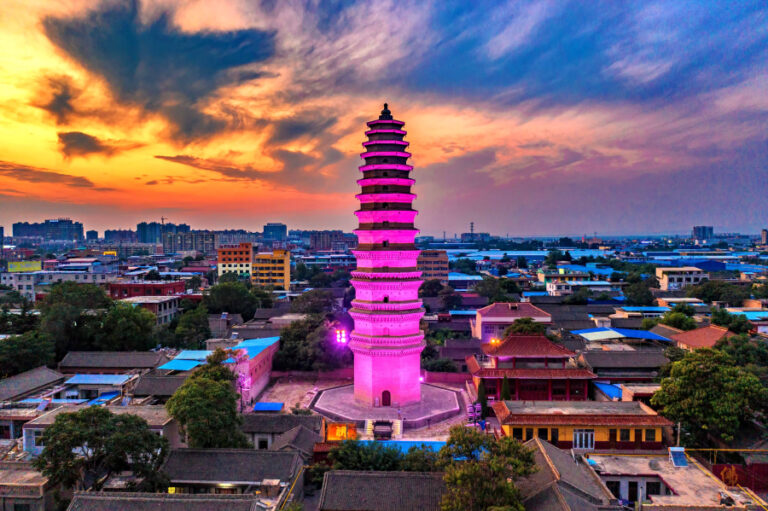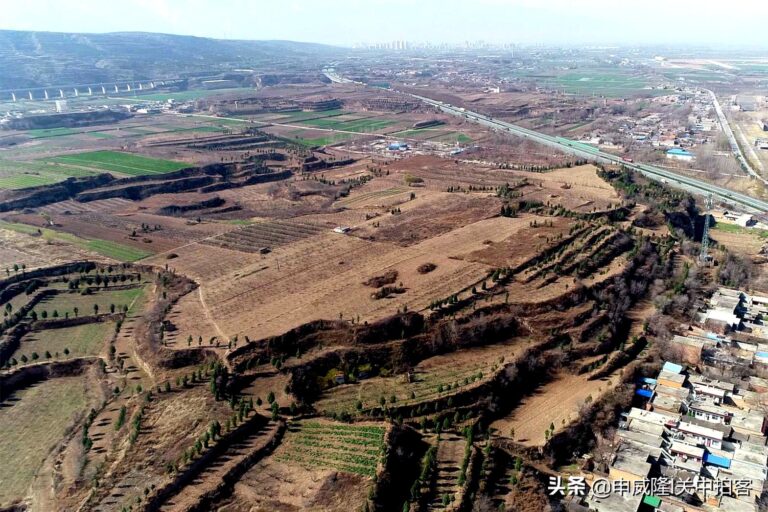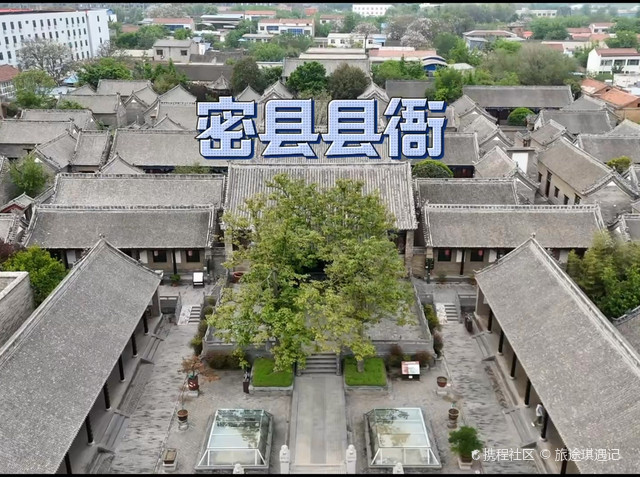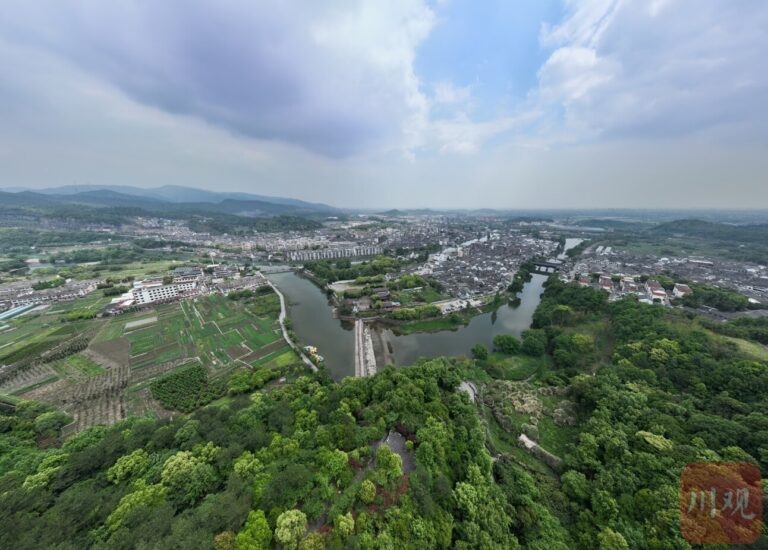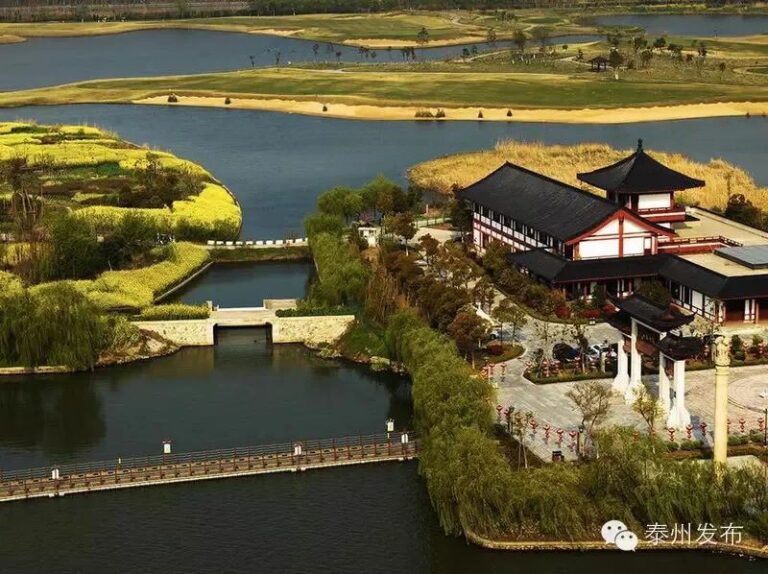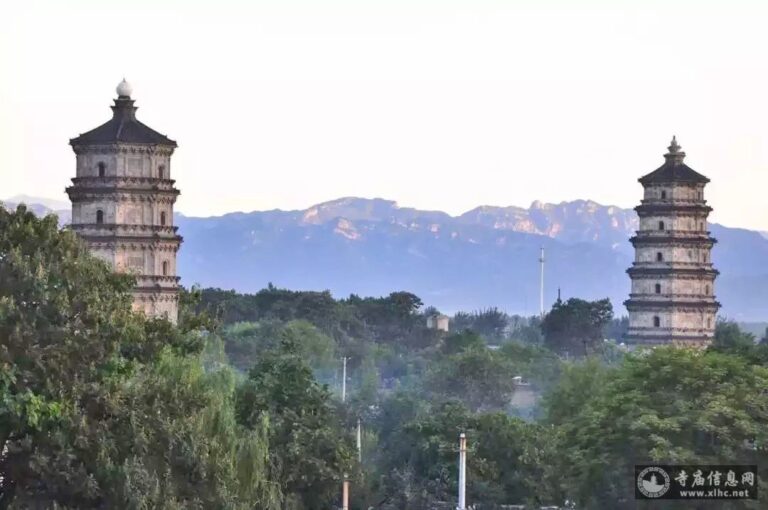A Traveler’s Guide to the Architectural Wonders of Taiyuan Yangqu Dawang Temple Hall
An Essential Guide to Visiting Taiyuan Yangqu Dawang Temple Hall
In This Guide
- An Essential Guide to Visiting Taiyuan Yangqu Dawang Temple Hall
- The Rich History of Taiyuan Yangqu Dawang Temple Hall
- Main Highlights: What to See at Taiyuan Yangqu Dawang Temple Hall
- Planning Your Visit: A Practical Guide
- Tickets, Hours, and Booking
- How to Get There
- Local Cuisine and Accommodation
- Frequently Asked Questions
- Final Thoughts on Your Trip
Nestled within the historical tapestry of Shanxi Province, the Taiyuan Yangqu Dawang Temple Hall stands as a testament to the region’s rich cultural heritage and architectural ingenuity. Constructed during the Ming Dynasty in 1467, this temple hall is one of the few remaining structures from a time when the area was adorned with numerous similar edifices. The Dawang Temple, dedicated to Zhao Wu—an emblematic figure revered for his loyalty and benevolence—offers visitors a glimpse into the legends that have shaped local folklore.
The temple’s design is striking, featuring a unique no-column hall that showcases advanced structural techniques, setting it apart in Chinese architecture. Its dramatic wooden doors, embellished with intricate carvings, lead into a sanctuary adorned with vibrant murals that once depicted lively scenes of myth and history, although many of these have sadly succumbed to the ravages of time. Despite the wear, the remaining artwork still captivates, narrating stories of the past in vivid colors.
Beyond its architectural allure, the Dawang Temple is steeped in local legends, including tales of the “Zhao Family Orphan,” whose life and trials have woven a fabric of loyalty and sacrifice that resonates through the ages. The temple’s location in the serene village of Fan Zhuang, near Taiyuan, invites travelers to not only explore its hallowed halls but also to reflect on the profound cultural narratives that continue to inspire reverence and pilgrimage.
For those venturing into this lesser-known gem, the Yangqu Dawang Temple Hall promises more than just a visit; it offers a contemplative journey through time, where history, spirituality, and artistry converge in a single, breathtaking experience.
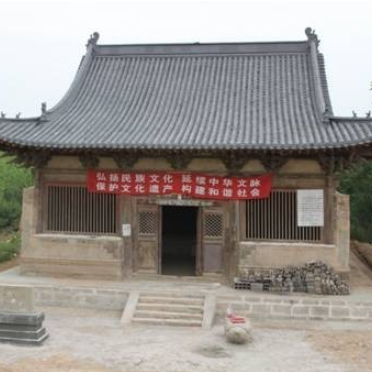
Taiyuan Yangqu Dawang Temple Hall.
The Rich History of Taiyuan Yangqu Dawang Temple Hall
Nestled in the serene landscapes of Shanxi Province, the Taiyuan Yangqu Dawang Temple Hall stands as a testament to the rich tapestry of Chinese history and culture. Established during the Ming Dynasty in 1467, this temple complex has undergone numerous transformations, reflecting the turbulent historical events that have shaped the region.
The temple is dedicated to Zhao Wu, a legendary figure from the Spring and Autumn period, widely known through the tragic tale of the Zhao family, often referred to as “Zhao’s Orphans.” After the fall of his family, Zhao Wu was hidden by a family physician in the mountains of Yangqu, which eventually became a site of worship and reverence. Over time, Zhao Wu grew to become a respected minister in the Jin state, earning a reputation for his benevolence towards the common people. Following his death, he was venerated as a rain deity, and many temples were erected in his honor, particularly in the regions surrounding Taiyuan.
The Yangqu Dawang Temple itself was originally a grand complex featuring various halls, drum towers, and a plethora of intricate decorations, embodying the architectural brilliance of its time. Unfortunately, much of its grandeur was lost during the Japanese occupation in the 20th century when the temple was set ablaze to prevent the construction of military fortifications. This act of destruction left behind only the main hall, a somber reminder of the temple’s former splendor.
What remains today is a unique structure characterized by its impressive no-column architecture, a rarity in Chinese temple design. The main hall, elevated on a stone platform, showcases a square footprint and a single-eaved hip roof—a significant architectural feat that minimizes the need for internal supporting columns. This method not only enhances the aesthetic appeal but also demonstrates the sophisticated engineering skills of the time.
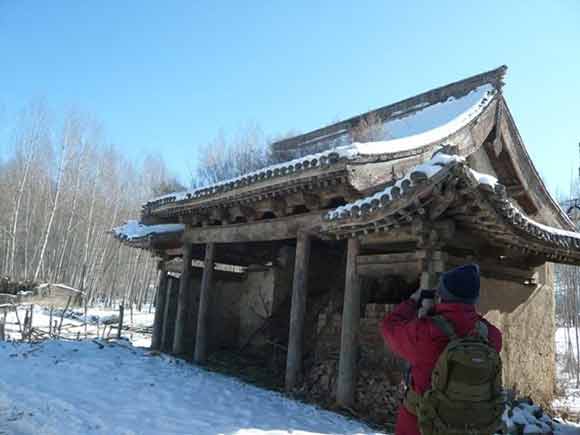
Taiyuan Yangqu Dawang Temple Hall.
Inside, the temple walls are adorned with remnants of vibrant murals from the Ming Dynasty, depicting vivid scenes of daily life and mythological narratives. These artworks, although damaged over the years, still evoke a sense of the temple’s historic significance and its role in the spiritual life of the community.
Today, the Yangqu Dawang Temple Hall is recognized as a key cultural heritage site and a national protected monument. Its preservation allows visitors to connect with centuries of history, offering insights into the cultural and religious practices that have flourished in this region. For those who visit, the temple not only serves as a place of reflection but also as a living narrative of loyalty, resilience, and the enduring legacy of Zhao Wu.
Main Highlights: What to See at Taiyuan Yangqu Dawang Temple Hall
The Taiyuan Yangqu Dawang Temple Hall is a captivating historical site nestled in the picturesque landscape of Shanxi Province. Its origins trace back to the Ming Dynasty, specifically established in 1467, and it stands as a testament to the region’s rich cultural heritage and architectural ingenuity. Here are some of the key highlights that make this temple hall a must-visit destination:
-
Architectural Marvel: The Dawang Temple Hall is renowned for its unique construction, featuring a remarkable “no-column hall” design. This innovative approach utilizes a complex wooden framework that allows for a spacious interior without the need for supporting pillars, creating an open and airy atmosphere.
-
Intriguing History: The temple is dedicated to Zhao Wu, a legendary figure from the historical tale of the Zhao Family Orphans. This narrative adds a layer of cultural significance to the site, as visitors can reflect on themes of loyalty and resilience that have shaped local folklore.
-
Stunning Murals: Inside the hall, visitors can still glimpse remnants of exquisite murals from the Ming Dynasty. These vibrant artworks depict lively scenes and intricate patterns, showcasing the artistic talent of the time. The murals, although weathered, continue to tell stories through their vivid imagery.
-
Cultural Significance: Recognized as a national key cultural relic, the Dawang Temple Hall serves not only as a place of worship but also as a cultural hub that preserves the traditions and beliefs of the local community. The temple reflects the deep-rooted spiritual practices in the region, where people historically sought blessings for rain and bountiful harvests.
-
Scenic Setting: Located in the serene surroundings of Yangqu County, the temple hall is easily accessible yet feels worlds away from the hustle and bustle of urban life. The tranquil environment provides an ideal backdrop for visitors looking to immerse themselves in history and spirituality.
-
Engaging Visitor Experience: The temple is often open for visitors, allowing them to explore its historical significance, admire its architectural beauty, and connect with the local culture. Engaging with the friendly caretakers can enhance the experience as they share insights and anecdotes about the temple’s storied past.
A visit to the Yangqu Dawang Temple Hall is not just a journey through time; it is an exploration of the enduring spirit of tradition and community in Shanxi Province. Whether you’re an architecture enthusiast, a history buff, or simply seeking a peaceful retreat, this site promises a memorable experience.
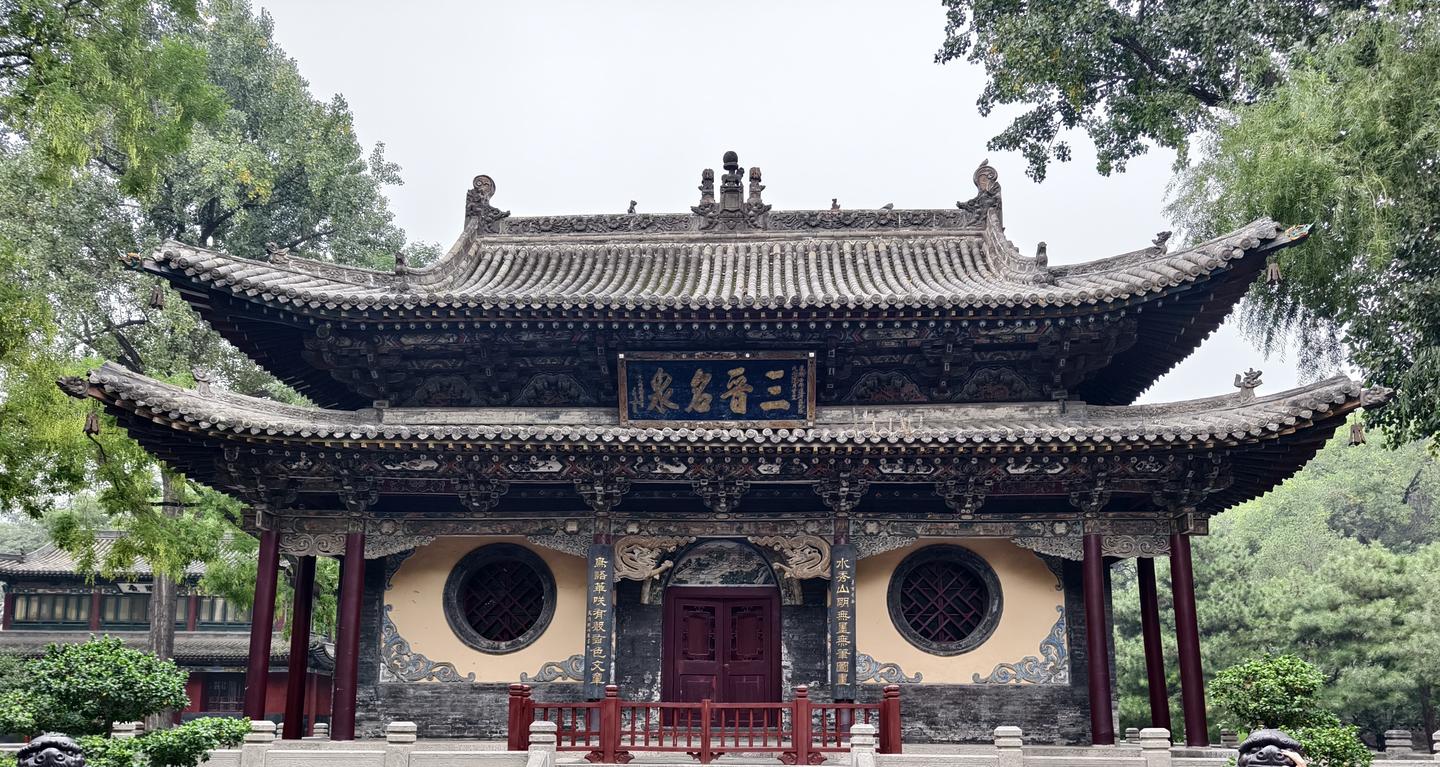
Taiyuan Yangqu Dawang Temple Hall.
Planning Your Visit: A Practical Guide
Practical Guide to Taiyuan Yangqu Dawang Temple Hall
Visiting the Yangqu Dawang Temple Hall offers travelers a unique glimpse into China’s rich cultural heritage and architectural marvels. Nestled in the serene landscape of Shanxi Province, this historical site is an essential stop for those interested in ancient architecture and local folklore. Here’s everything you need to know to make the most of your visit.
Getting There
Location:
The Yangqu Dawang Temple Hall is located in Fanzhuang Village, Donghuangshui Town, Yangqu County, approximately 30 kilometers from the city of Taiyuan.
Transport Options:
– By Car: The most convenient way to reach the temple is by car. From Taiyuan, take Provincial Road 314 south towards Yangqu County. The journey takes about 45 minutes.
– Public Transport: Buses run from Taiyuan to Yangqu County, but services may be limited. It is advisable to check the local schedules in advance. Once in Yangqu, you may need to take a taxi or arrange for local transport to reach the temple.
Admission Information
Entry Fee:
Visiting the Yangqu Dawang Temple Hall is free of charge, making it an accessible destination for all travelers.
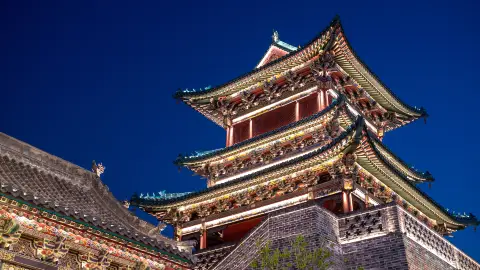
Taiyuan Yangqu Dawang Temple Hall.
Opening Hours:
The temple is open year-round, but access may depend on local events or activities. It’s a good idea to contact the temple administration a day ahead for arrangements, especially if you plan to visit during peak tourist seasons or holidays.
What to Expect
Architectural Highlights:
The temple hall features a unique and complex structure that is renowned for its “no-column” design, allowing for an expansive interior space without the need for support pillars. This innovative construction technique is a rare sight in traditional Chinese architecture.
- Main Hall: The hall is square-shaped, with three bays across its front. The roof features a single-eave hip design, which is considered a high standard in folk architecture.
- Artworks: Although many of the original murals and sculptures have deteriorated, some remnants of vibrant murals from the Ming Dynasty can still be admired. The intricate designs and depictions tell stories of local legends and historical figures, particularly the tale of Zhao Wu, the hall’s namesake.
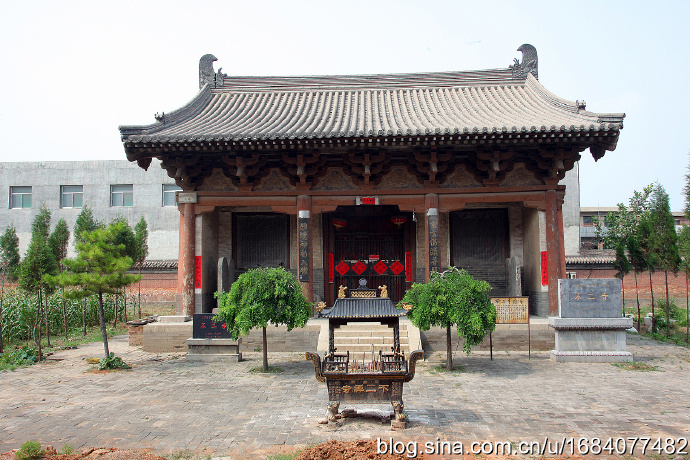
Taiyuan Yangqu Dawang Temple Hall.
Cultural Significance:
The temple is deeply intertwined with local folklore, particularly the story of Zhao Wu, who became a symbol of loyalty and righteousness after surviving a family tragedy. Visitors can learn about the cultural impact of this story and its relevance in local customs.
Tips for Visitors
- Photography: The temple’s unique architecture and serene environment make it a perfect spot for photography. However, be respectful of the site, especially during religious ceremonies or when locals are visiting.
- Local Culture: Engage with local traditions; if you have the opportunity, join in any festivals or prayers, particularly those held in honor of Zhao Wu.
- Nearby Attractions: After visiting the temple, consider exploring other local historical sites. Nearby attractions include traditional villages and other ancient temples that showcase Shanxi’s rich heritage.
Local Cuisine and Shopping
While the area around the temple may not have extensive dining options, you can find local specialties in nearby towns. Look for:
– Yangqu Millet: A local delicacy known for its quality and taste.
– Traditional Snacks: Sample local snacks and street food to experience authentic Shanxi flavors.
Conclusion
A visit to the Yangqu Dawang Temple Hall promises an enriching experience filled with history, culture, and stunning architecture. With its free entry and serene atmosphere, it’s an ideal destination for travelers seeking to connect with China’s ancient traditions. Make sure to plan your trip, check for local arrangements, and immerse yourself in the fascinating stories that this temple has to share.

Taiyuan Yangqu Dawang Temple Hall.
Tickets, Hours, and Booking
When planning a visit to the Taiyuan Yangqu Dawang Temple Hall, you’ll be pleased to know that access is free of charge. This makes it an excellent opportunity for travelers interested in cultural heritage and historical architecture to explore without any financial barriers.
The temple is open for visits all day, allowing you the flexibility to explore at your own pace. However, it’s essential to note that the temple is not always staffed. Visitors should consider reaching out in advance to confirm availability, as access is sometimes dependent on local caretakers being present.
While there are no entry fees, donations to support the preservation of this historical site are welcomed and encouraged. This contribution not only helps maintain the temple but also supports the local community and its cultural heritage.
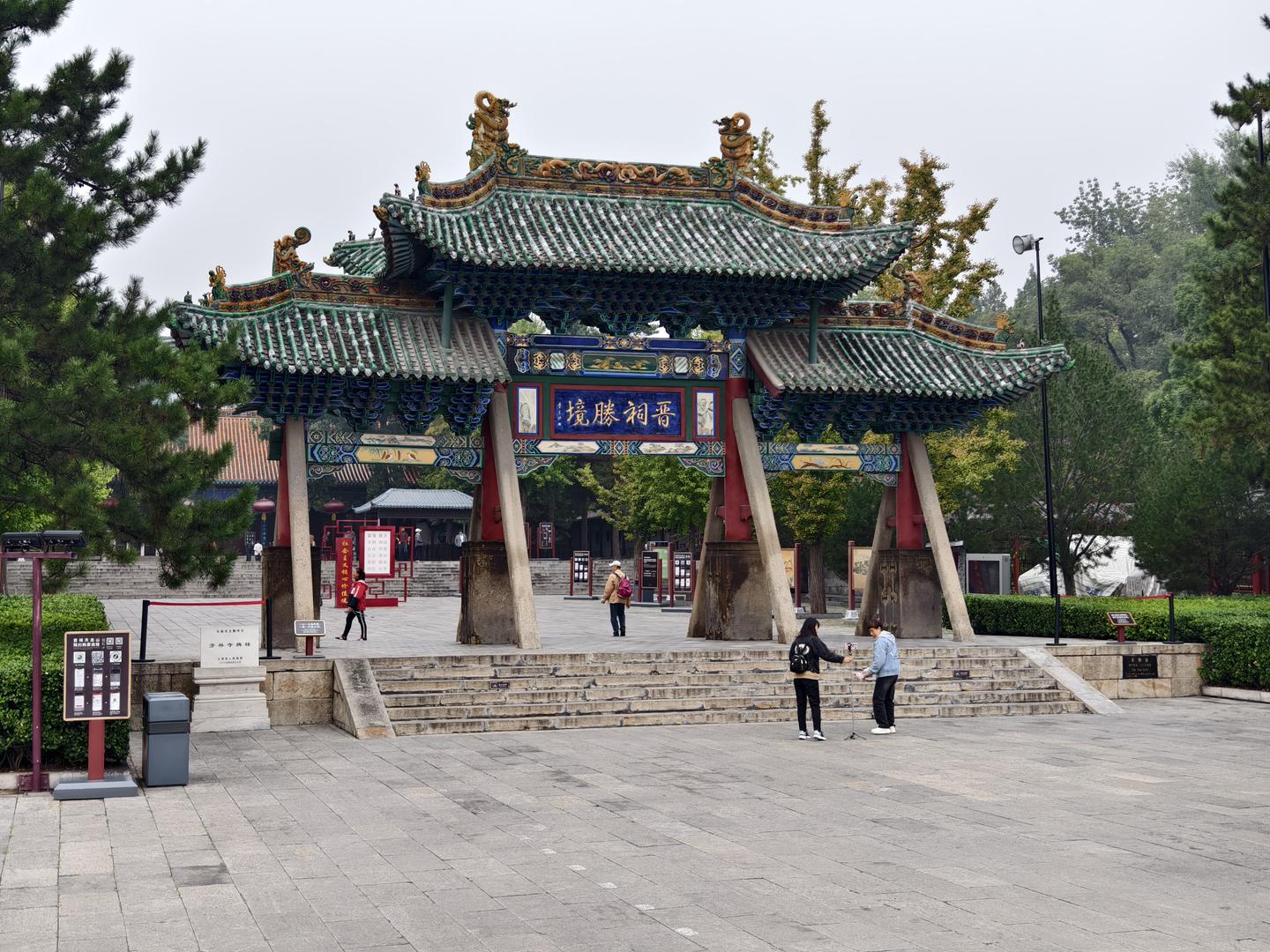
Taiyuan Yangqu Dawang Temple Hall.
For those planning a visit, it’s recommended to check local travel resources or contact the caretakers to ensure a smooth experience. Enjoy your exploration of this remarkable glimpse into China’s rich history!
How to Get There
Reaching Taiyuan Yangqu Dawang Temple Hall is an adventure that allows visitors to immerse themselves in both the rich cultural heritage and stunning landscapes of Shanxi Province. Here’s a comprehensive guide to help you navigate your way to this historical site.
Getting There
By Air
The nearest major airport is Taiyuan Wusu International Airport (TYN), located approximately 30 kilometers from Yangqu County. Upon your arrival, you can choose from several transportation options to reach the temple:
-
Taxi: Taxis are available at the airport and provide a convenient option for direct travel to Yangqu. Expect the journey to take around 40 minutes, depending on traffic.
-
Airport Shuttle: Some hotels may offer shuttle services to and from the airport, so it’s worth checking with your accommodation ahead of time.
By Train
If you prefer traveling by train, Taiyuan Railway Station serves as the main hub for long-distance trains. From there:
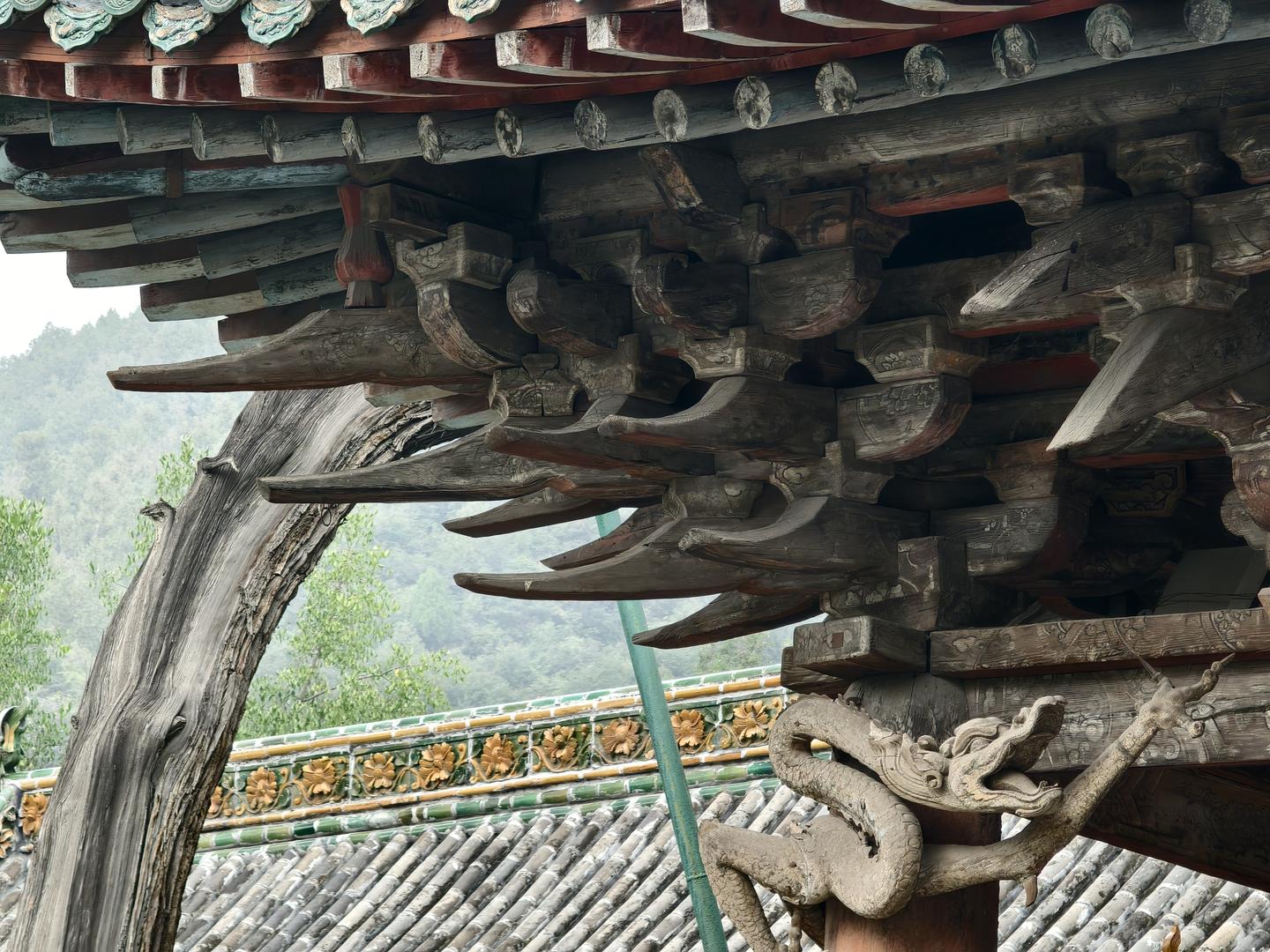
Taiyuan Yangqu Dawang Temple Hall.
-
Local Train to Yangqu: Board a train heading to Yangqu County. The journey typically lasts about 30-60 minutes, depending on the service. Check the train schedule in advance as services may vary.
-
Taxi from Yangqu Station: Once you arrive at Yangqu Station, taxis are readily available to take you directly to Dawang Temple Hall. The ride should only take about 15 minutes.
By Bus
Buses to Yangqu County are available from Taiyuan’s main bus stations, including Taiyuan East Bus Station.
-
Long-Distance Buses: Buses depart frequently throughout the day. The bus ride to Yangqu takes approximately 1 hour. Be sure to confirm the bus schedule prior to your trip.
-
Local Transportation: Upon arriving in Yangqu, you can take a local taxi or use ride-hailing apps to reach the temple. The temple is a short drive from the bus station.
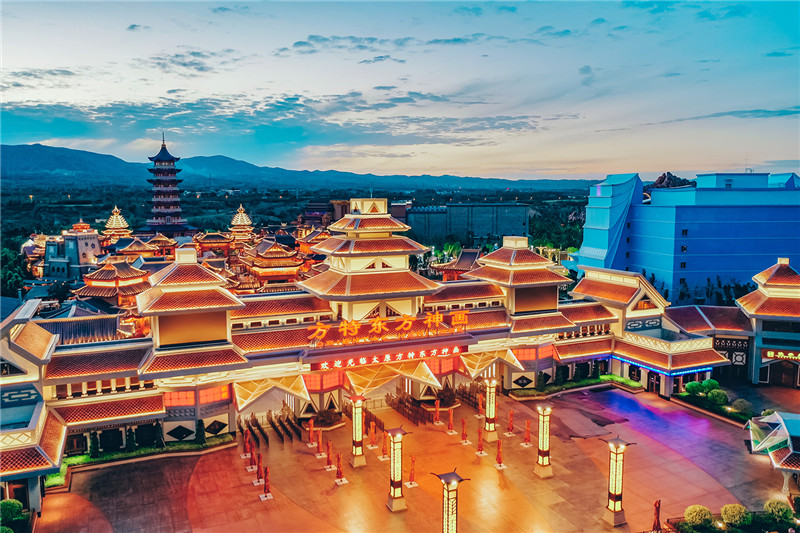
Taiyuan Yangqu Dawang Temple Hall.
Navigating Local Transport
Once in Yangqu, public transport options are limited. Taxis are the most common form of transportation for getting around. In addition, consider these options:
-
Bicycles: Renting a bicycle can be a pleasant way to explore the area, especially if you’re interested in exploring the surrounding countryside.
-
Walking: If you’re staying nearby, the temple is accessible by foot. The scenic countryside and local villages make for a pleasant walking experience.
Tips for Visitors
- Plan Ahead: It’s advisable to check the latest transportation schedules, especially for trains and buses, to avoid any last-minute changes.
- Cash: While larger cities may accept cards, it’s beneficial to carry cash for local transport and small purchases in Yangqu.
- Timing: The temple does not operate on a regular schedule; access is often reliant on prior arrangements with local guides or caretakers. Consider contacting them in advance to ensure your visit is smooth.
By following this transportation guide, your journey to Taiyuan Yangqu Dawang Temple Hall will be both convenient and enjoyable, allowing you to focus on the rich history and beauty of this incredible site.
Local Cuisine and Accommodation
When visiting the Taiyuan Yangqu Dawang Temple Hall, immersing yourself in the local culinary delights and finding suitable accommodation can greatly enhance your experience. Here are some recommendations to consider during your trip.
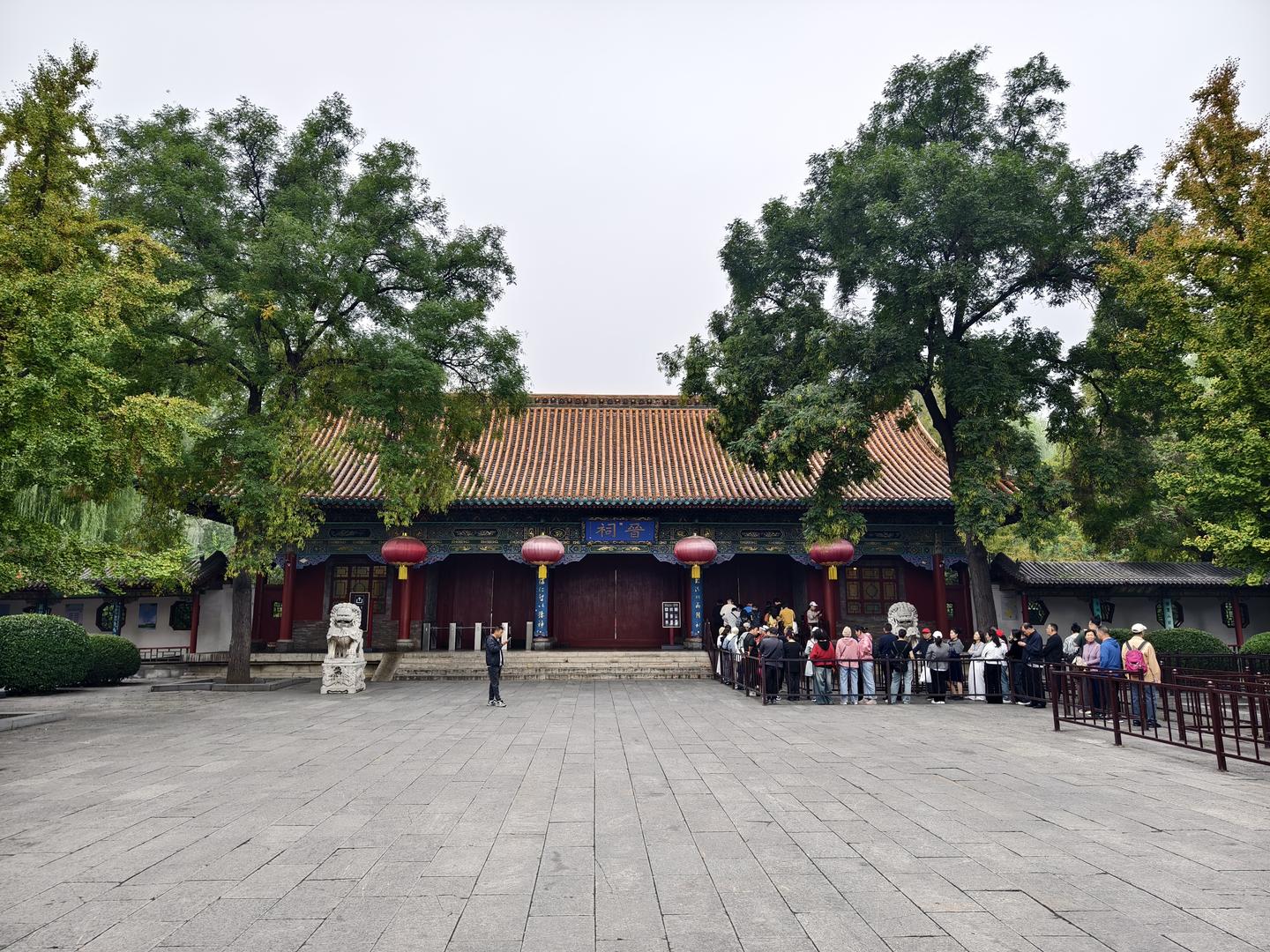
Taiyuan Yangqu Dawang Temple Hall.
Local Cuisine
Yangqu County is known for its authentic Shanxi flavors, making it a delightful stop for food lovers. Here are some notable eateries:
-
Shuanghecheng Restaurant (双合成)
A local favorite, offering traditional dishes that showcase the rich culinary heritage of Shanxi. Don’t miss their signature dishes which often include handmade noodles and hearty stews. -
Youmian Village (莜面村)
Specializing in oat noodles, this restaurant provides a unique taste of local grain dishes. The noodles are known for their chewy texture and are best enjoyed with various toppings or in a rustic broth. -
Tianya Gourmet House (天涯美食府)
This establishment offers a diverse menu, featuring both local and fusion dishes. It’s a great place to try something new while enjoying the ambiance of Yangqu. -
Yangqu Xinha Hotel Restaurant (阳曲鑫河大酒店)
Located within the Xinha Hotel, this restaurant serves a variety of delicious dishes, perfect for unwinding after a day of exploration. The dining experience here is complemented by a comfortable setting. -
Wuwang Wo Forever Dumpling House (勿忘我永濟餃子館)
A must-visit for dumpling enthusiasts, this spot is famous for its handmade dumplings filled with a variety of ingredients, all bursting with flavor.
Accommodation Options
Finding a comfortable place to stay in Yangqu is essential for a relaxing visit. Here are some recommended hotels:
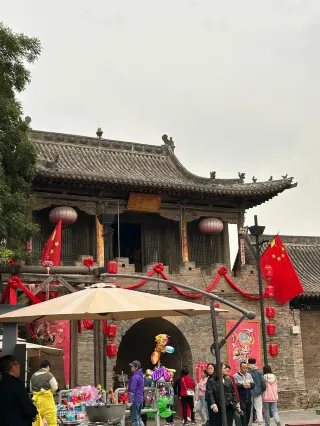
Taiyuan Yangqu Dawang Temple Hall.
-
Yangqu Xinha Hotel (阳曲鑫河大酒店)
This hotel offers modern amenities and is conveniently located for exploring the surrounding area, including the Dawang Temple Hall. Guests appreciate the clean, spacious rooms and friendly staff. -
Sunshine Hotel (阳曲阳光酒店)
Ideal for budget travelers, Sunshine Hotel provides basic accommodations with a focus on comfort. It’s a good base for those looking to explore the local sights without breaking the bank. -
Chateau Yangqu (阳曲庄园酒店)
For those seeking a more upscale experience, this hotel features elegant decor and top-notch facilities. The on-site dining options and serene environment make it a perfect retreat after a day of sightseeing. -
Local Guesthouses
If you’re interested in a more intimate experience, consider staying at a local guesthouse. Many families in the area offer rooms for rent, providing a chance to immerse yourself in the local culture and hospitality.
Tips for Travelers
- Advance Booking: Especially during peak travel seasons, it’s advisable to book your accommodation in advance to secure the best options.
- Local Specialties: Be sure to try the local specialties such as Yangqu millet and garlic, which are highly praised by visitors.
- Explore Nearby: Take time to explore the local markets and street food stalls for a genuine taste of the region.
With these culinary and accommodation recommendations, your visit to the Taiyuan Yangqu Dawang Temple Hall will not only be culturally enriching but also a delightful gastronomic adventure.
Frequently Asked Questions
Frequently Asked Questions
-
What is the Yangqu Dawang Temple Hall?
The Yangqu Dawang Temple Hall is a historical temple located in Yangqu County, Shanxi Province, China. It is dedicated to Zhao Wu, a legendary figure from the Zhao family, known for his loyalty and virtue during the Spring and Autumn period. -
When was the Yangqu Dawang Temple Hall built?
The temple was established during the Ming Dynasty in 1467. Although it originally had a more extensive structure, today only the main hall remains. -
Is there an entrance fee to visit the temple?
No, entry to the Yangqu Dawang Temple Hall is free of charge. Visitors can explore the site without paying any admission fees. -
What are the main architectural features of the temple?
The temple is renowned for its unique architectural style, particularly its “no-column hall,” which is rare for structures of its size. The main hall features intricate murals and historical carvings, showcasing the artistry of the Ming Dynasty. -
How can I get to Yangqu Dawang Temple Hall?
The temple is located in Fan Zhuang Village within Yangqu County. It is accessible by car or public transport from Taiyuan, the capital of Shanxi Province. Local buses and taxis can also provide convenient transportation options. -
What are the visiting hours for the temple?
The Yangqu Dawang Temple Hall is open all day, but it’s advisable to visit early in the day or late afternoon to avoid the heat and crowds. -
Can I take photographs inside the temple?
Yes, visitors are generally allowed to take photographs inside the temple, but it’s important to respect the site’s cultural significance and avoid using flash photography. -
Are there any nearby attractions worth visiting?
Yes, the surrounding area of Yangqu County has several historical sites and natural attractions, including other temples, ancient towns, and scenic spots that provide a rich cultural experience for visitors.
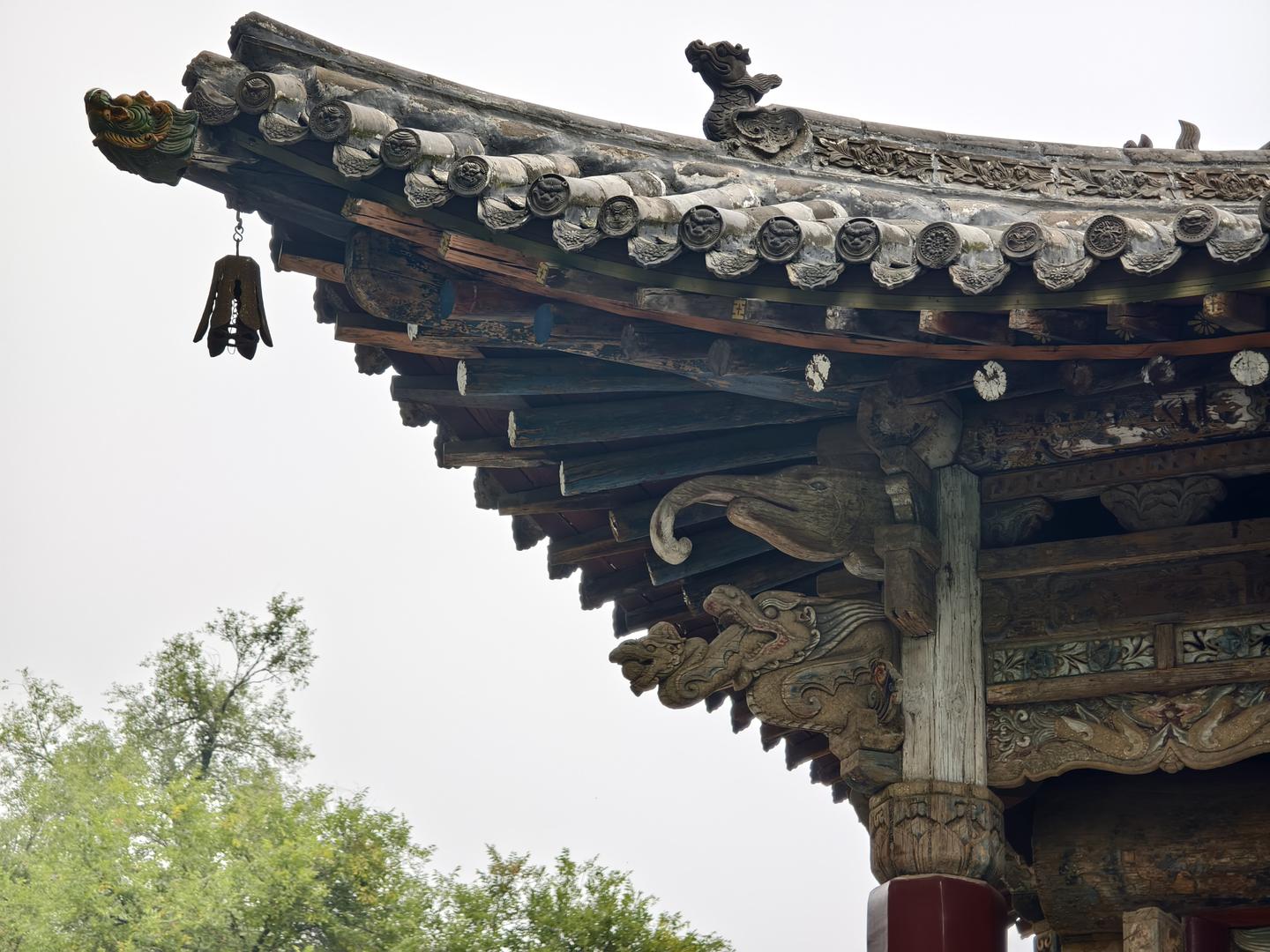
Taiyuan Yangqu Dawang Temple Hall.
Final Thoughts on Your Trip
Visiting the Taiyuan Yangqu Dawang Temple Hall offers a unique glimpse into China’s rich cultural heritage and architectural ingenuity. Nestled in the serene landscape of Shanxi Province, this temple not only serves as a historical site but also as a testament to the enduring legacy of the Zhao family’s loyalty and valor.
As you step through the ancient wooden doors and gaze upon the intricate murals and the impressive beamless hall, you are transported back in time. The stories etched into its walls narrate a tale of resilience and community spirit, echoing the voices of those who sought solace and guidance within these sacred walls.
Whether you are a history buff, an architecture enthusiast, or simply in search of a tranquil retreat, the Dawang Temple Hall will leave you with a profound appreciation for the artistry and devotion that shaped it. As you conclude your visit, take with you not just the memories of its beauty, but the inspiration drawn from its rich narrative—a reminder of the deep cultural roots that connect us all.
